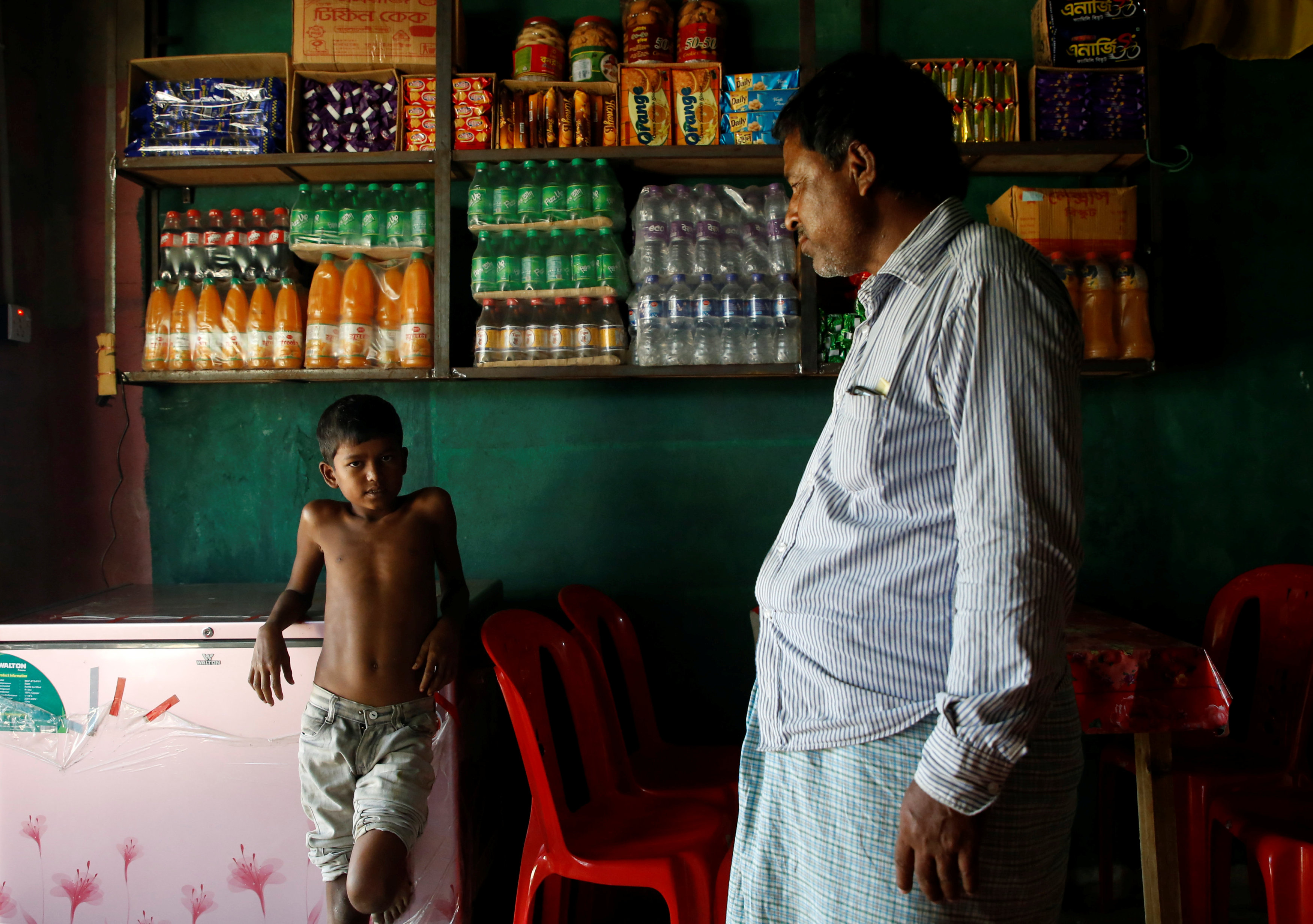
By Simon Cameron-Moore and Yimou Lee
YANGON (Reuters) – U.S. Secretary of State Rex Tillerson will stress the need to halt violence and stabilize Rakhine State when he meets the head of Myanmar’s military on Wednesday in a bid to ease the Rohingya refugee crisis, a senior State Department official said.
More than 600,000 Rohingya Muslims have fled to Bangladesh since late August, driven out by a counter-insurgency clearance operation of Myanmar forces in Rakhine. A top U.N. official has called the operation a textbook case of “ethnic cleansing”.
Attending an East Asia summit in Manila on Tuesday, Tillerson met Myanmar leader Aung San Suu Kyi, whose less than two-year-old civilian administration shares power with the military and has no control over its generals.
He will meet Suu Kyi again in the Myanmar capital of Naypyitaw on Wednesday, and hold separate talks with the head of the armed forces, Senior General Min Aung Hlaing.
Asked what approach Tillerson would take with Myanmar’s army chief, the State Department official told journalists in a briefing by teleconference that the emphasis would be on restoring peace in Rakhine.
“We are focusing on trying to stabilize areas in northern Rakhine so that people can return there, stopping the violence, making sure that the military would protect all populations in that area equally and that they conduct a credible investigation that leads to accountability for people who have perpetrated abuses,” said the official, who was with Tillerson in Manila and declined to be identified.
The official said the consequences for the country, also known as Burma, if it failed to respond to the crisis with accountability could be part of the conversation with the military leader.
“Burma made a lot of progress and we would not want to see that progress reversed,” the official added.
U.S. senators in Washington are pressing for economic sanctions and travel restrictions targeting the Myanmar military and its business interests.
“The secretary will reiterate support for Burma’s democratic transition and urge the Burmese government to protect the local population and allow unhindered humanitarian and media access, (and) support for a credible investigation of abuses,” the official added.
Accusations of organized mass rape and other crimes against humanity were leveled at the Myanmar military on Sunday by another senior U.N. official who had toured camps in Bangladesh where Rohingya refugees have taken shelter.
Mass Exodus: http://tmsnrt.rs/2xTAOon
‘WHITEWASH’
Pramila Patten, special representative of the U.N. secretary-general on sexual violence in conflict, said she would raise accusations against the Myanmar military with the International Criminal Court in the Hague.
The military, known as the Tatmadaw, has consistently protested its innocence, and on Monday it posted the findings of an internal investigation on the Facebook page of Min Aung Hlaing.
It said it had found no instances where its soldiers had shot and killed Rohingya villagers, raped women or tortured prisoners. It denied that security forces had torched Rohingya villages or used “excessive force”.
The military said that, while 376 “terrorists” were killed, there were no deaths of innocent people.
Human rights groups poured scorn on the military’s investigation, branding it a “whitewash” and calling for U.N. and independent investigators to be allowed into Myanmar.
“The Burmese military’s absurd effort to absolve itself of mass atrocities underscores why an independent international investigation is needed to establish the facts and identify those responsible,” Brad Adams, Asia director at Human Rights Watch, said in a statement.
Amnesty International also dismissed the military’s internal investigation. “There is overwhelming evidence that the military has murdered and raped Rohingya and burned their villages to the ground,” the London-based rights group said.
The government in mostly Buddhist Myanmar regards the Muslim Rohingya as illegal immigrants from Bangladesh.
And Suu Kyi’s failure to speak out strongly over their plight has widely damaged the Nobel Peace Prize winner’s international reputation as a stateswoman.
Many diplomats, however, believe Myanmar’s fragile transition to democracy after 49 years of military rule would be jeopardized if she publicly criticized the armed forces.
“Both parts of the government will have to work together in order to solve this problem…Trying to get two of them to work together, to try to solve the problem, is certainly going to be very important,” the U.S. official said.
The U.S. official said Suu Kyi had been forthcoming in her talks with Tillerson and others during the past few days about the steps that needed to be taken to improve the situation, including plans for the voluntary repatriation of Rohingya.
U.N. Secretary-General Antonio Guterres, Canadian Prime Minister Justin Trudeau were among those she met in Manila to discuss the Rohingya crisis.
“This is a tremendous concern to Canada and to many, many countries around the world,” Trudeau told a news conference.
Japan’s Prime Minister Shinzo Abe pledged up to 117 billion yen ($1 billion) of development aid to Myanmar in his meeting with Suu Kyi.
While world leaders wrung their hands, thousands of Rohingya remained stranded in Myanmar, on beaches around the mouth of the Naf river, hoping to find a boat to make the short, sometimes perilous crossing to Bangladesh.
“They’re still coming, risking their lives, driven by fears of starvation and violence,” Shariful Azam, a police official in Bangladesh’s Cox’s Bazar, a narrow spit of land where the world’s most urgent humanitarian crisis is unfolding.
Trail of destruction: http://tmsnrt.rs/2fDBxTc
A desperate escape: http://tmsnrt.rs/2A1ATUP
(Additional reporting Wa Lone in YANGON, Ruma Paul in DHAKA, Steve Holland, Karen Lema and Manny Mogato in MANILA, David Brunnstrom in WASHINGTON; Editing by Robert Birsel/Mark Heinrich)














